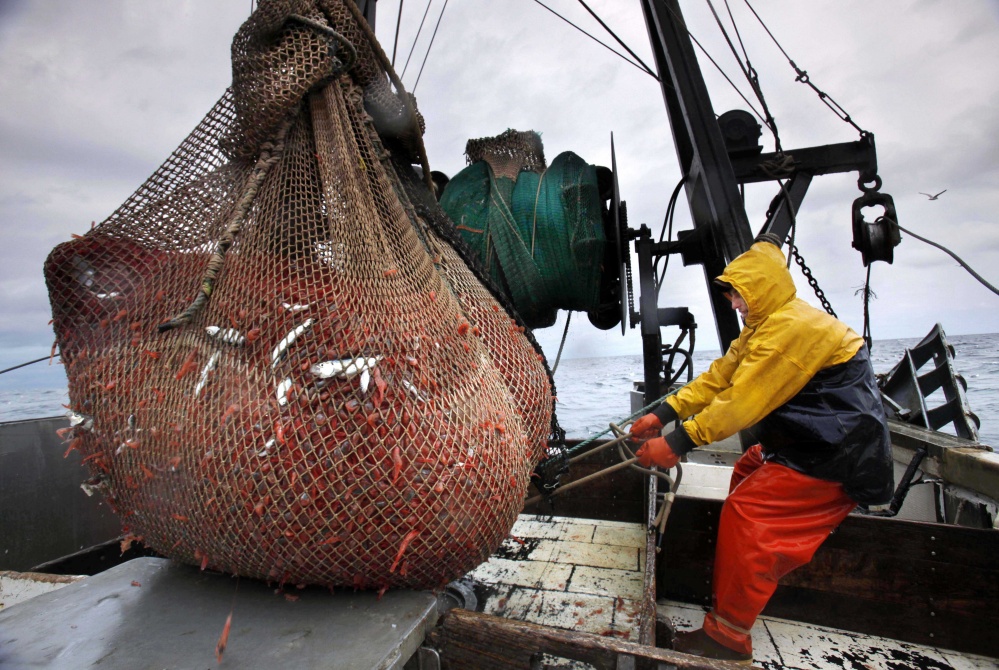Climate change, driven by soaring emissions of heat-trapping gases, is usually seen as a long-term environmental problem.
Increases in the global air temperature are measured in a degree or two over many decades. It’s easy to think of it as a problem for our grandchildren or great-grandchildren, not something we need to worry about right now.
But that is wrong. We are already seeing the effect of a warming planet, and we are already paying the price.
The latest example involves Maine’s shrimp fishery – the fishing season has been canceled for the second straight year. Fishermen landed 12 million pounds of northern shrimp in 2010, a total that dropped to 563,313 in 2013 before that year’s shutdown.
The rapid decline is not a result of overfishing, but because of warmer water, said Atlantic States Marine Fisheries Commission researchers. The waters off Maine are the southern end of the range for these shrimp, and even a small increase in the temperature is enough to make them scarce here.
When people talk about global climate change, the focus is usually air temperature. But to anyone who has spent time near the Maine coast, the ocean is a moderating force. Summers are cooler and winters milder than a few miles inland, because the sea warms more slowly than the air, and also retains heat much longer.
The Gulf of Maine Research Institute has found that although the water off Maine may still feel cold to swimmers, it’s warming faster than 99 percent of the Earth’s other oceans, eight times faster than the global rate.
That might bring some southern species to Maine waters, but could also mean the end of what had been a reliable and lucrative fishery.
And shrimp are a sentinel species when it comes to climate change. Like the death of a canary in a coal mine, their disappearance is not just a bad thing on its own, but a warning sign of what could happen if the trends don’t change. At risk is Maine’s signature lobster fishery, which is already showing signs of what could happen if the water gets warmer and more acidic.
Lobstermen say lobsters are going farther from shore in search of colder water, and a warm spring in 2012 was a key factor in the early production of soft-shell lobsters, which caused the price to collapse.
These are not long-term problems with consequences far off in the future. Sound public policies, such as federal limits on greenhouse gases from power plants and state renewable energy portfolio laws, are steps in the right direction. More comprehensive federal laws and international agreements will be needed to make any meaningful change.
It may be too late to reverse global climate change, but it’s not too early to see the cost of failing to act now.
Send questions/comments to the editors.



Comments are no longer available on this story